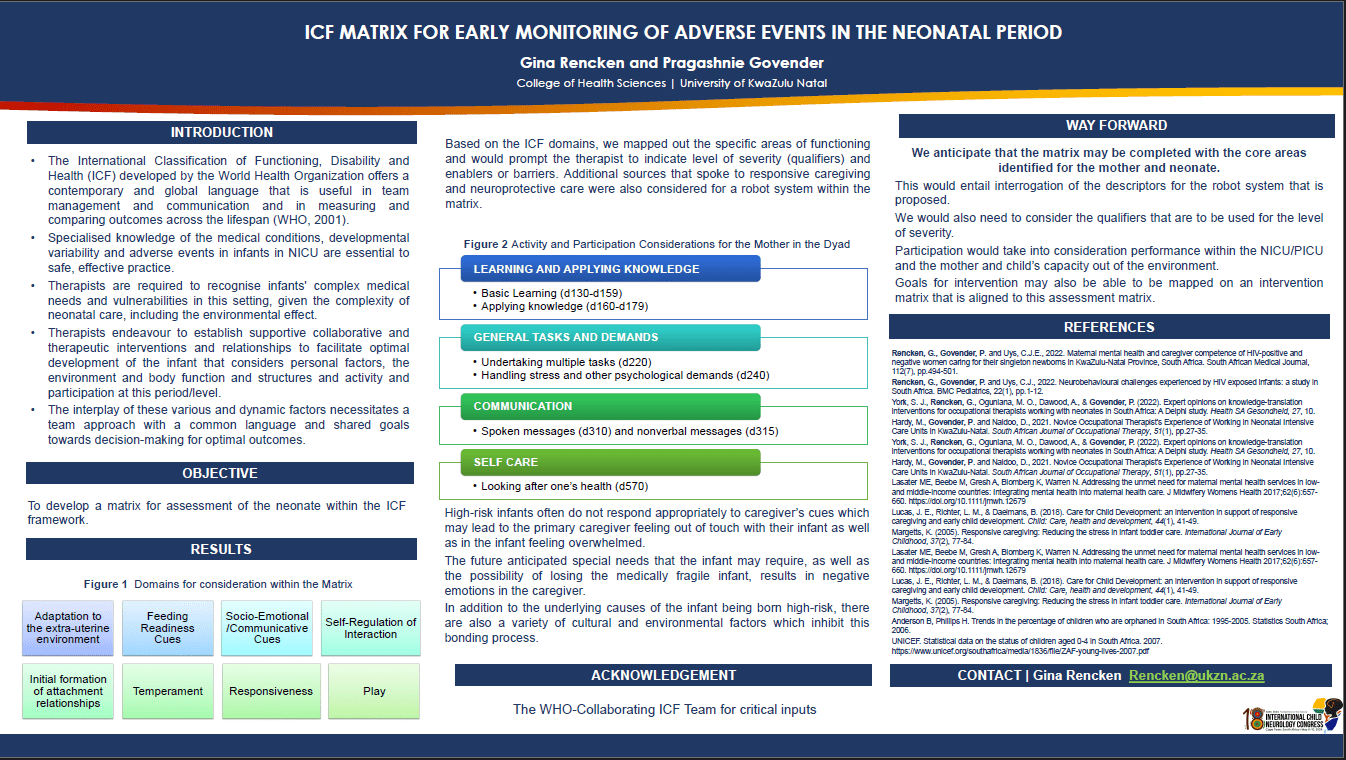ICF Matrix For Early Monitoring Of Adverse Events In The Neonatal Period
The International Classification of Functioning, Disability and Health (ICF) developed by the World Health Organization offers a contemporary and global language that is useful in team management and communication and in measuring and comparing outcomes across the lifespan (WHO, 2001). In this study, the authors endeavoured to develop a matrix for assessment of the neonate within the ICF framework. Specialised knowledge of the medical conditions, developmental variability and adverse events in infants in NICU are essential to safe, effective practice. Therapists are required to recognise infants' complex medical needs and vulnerabilities in this setting, given the complexity of neonatal care, including the environmental effect. Therapists endeavour to establish supportive collaborative and therapeutic interventions and relationships to facilitate optimal development of the infant that considers personal factors, the environment and body function and structures and activity and participation at this period/level. The interplay of these various and dynamic factors necessitates a team approach with a common language and shared goals towards decision-making for optimal outcomes. The matrix was developed using evidence-based sources and practitioner knowledge on neonatal occupations and responsive caregiving, as well as neuroprotective care. Accurate and early assessment is expected to guide therapists in developing responsive interventions for neonates. The matrix also include core areas for the mother and neonate, considering performance within and outside the NICU/PICU environment. Intervention goals can be mapped on an aligned intervention matrix based on this assessment matrix.
Pragashnie Govender
University of Kwazulu Natal
South Africa
Gina Rencken
University of Kwazulu Natal
South Africa

Gina Rencken
University of Kwazulu Natal
South Africa